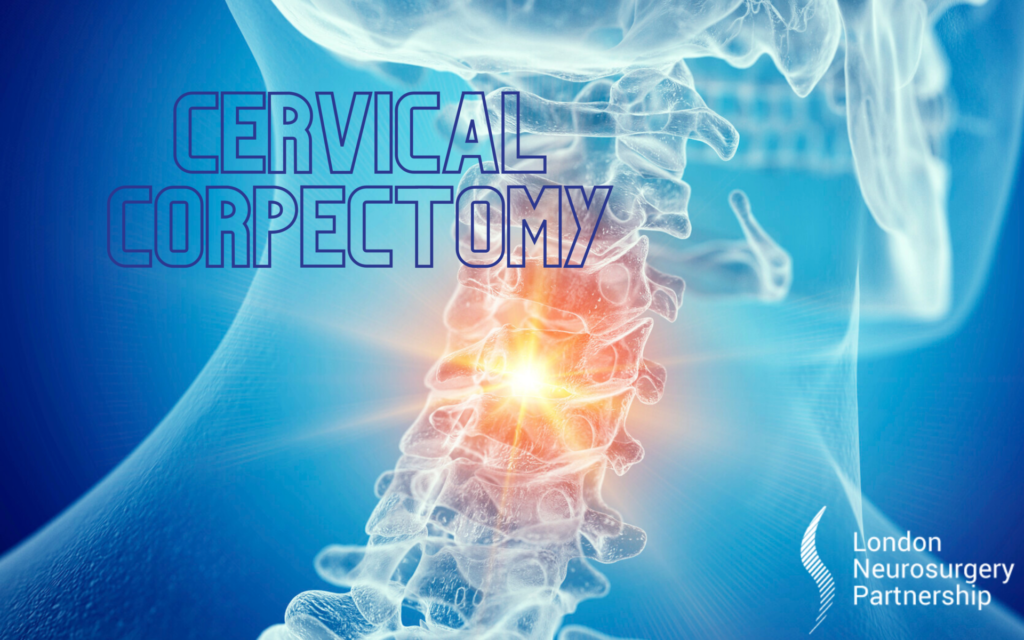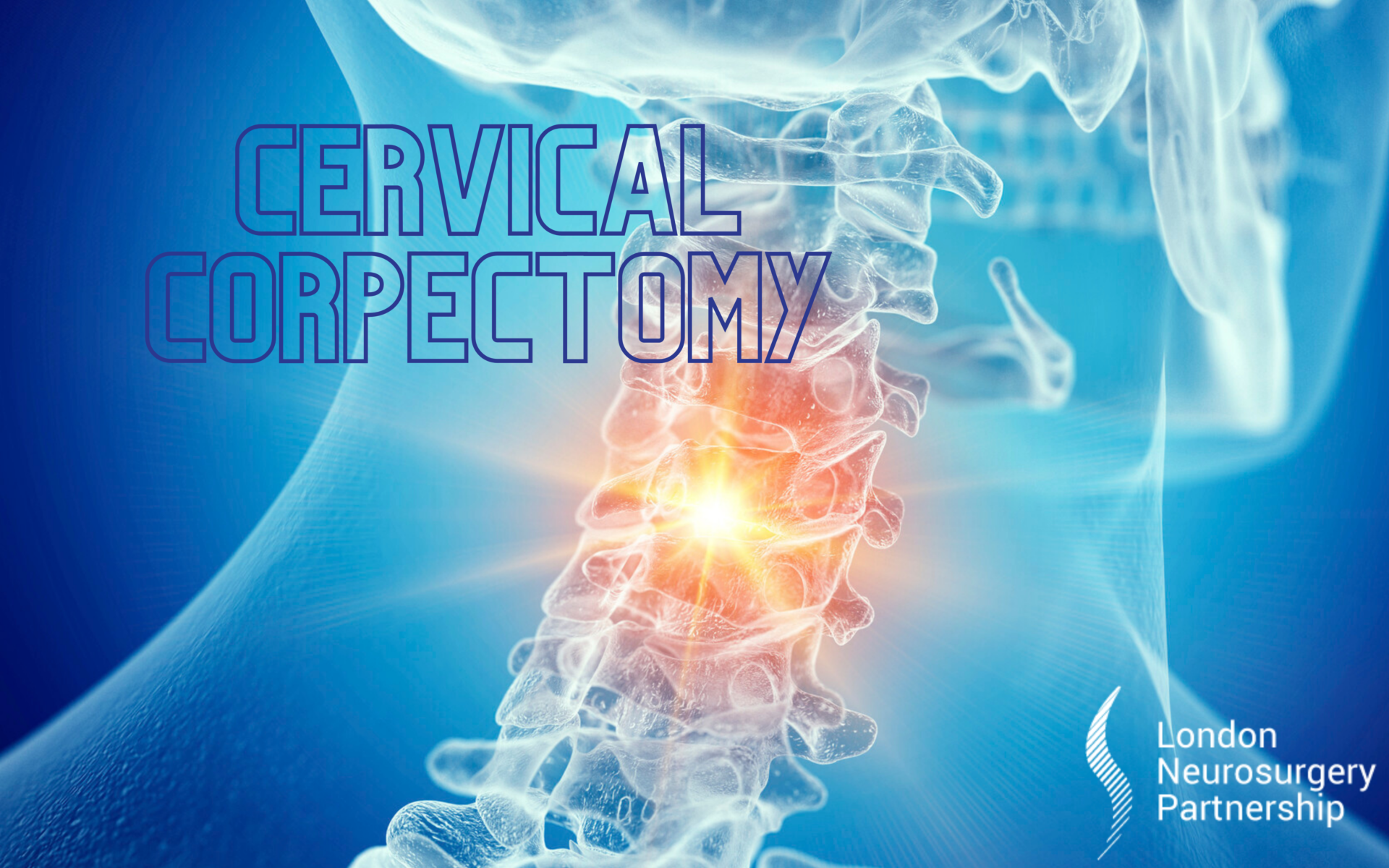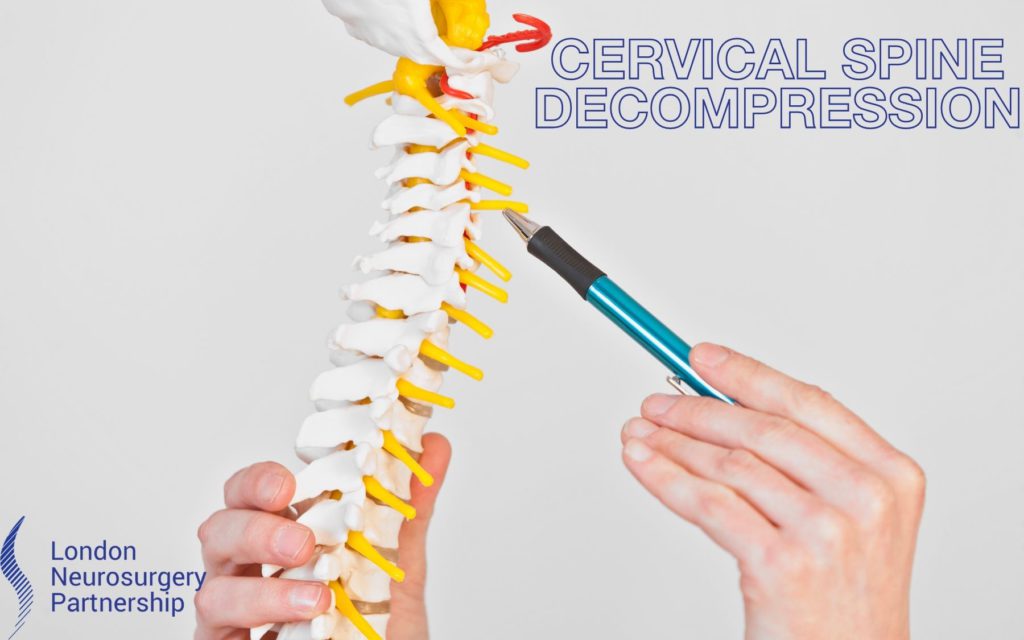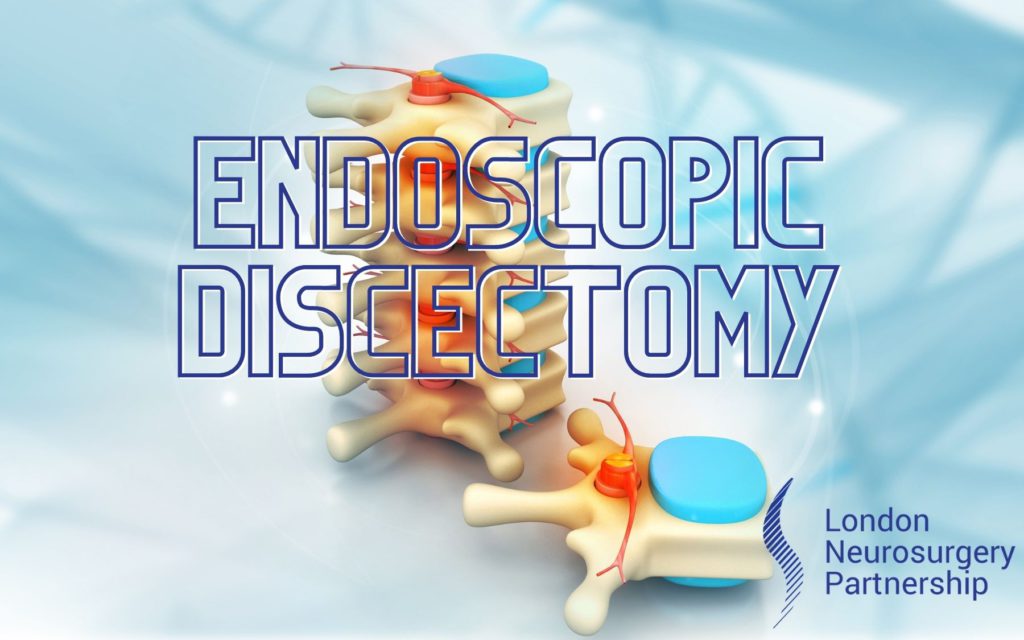
A cervical corpectomy is a surgical procedure that is done to relieve pressure on the spinal cord in the neck. This can be done for a number of different reasons including spinal stenosis, spinal tumours or trauma that has led to the vertebral body shattering.
What happens during a cervical corpectomy?
The affected discs are approached via the front of the neck, making a large incision. The muscles, nerves, and body vessels are carefully moved to ensure that no damage is done during the surgery. The neurosurgeon, with the use of imaging, removes the affected vertebral body and the disc above and below (more than one disc may be removed depending on the severity of the condition). Once this has been completed, the empty space must be filled. This can either be a spinal fusion done with bone from another part of the body or a tall cage and metal plate to support the rest of the vertebral column (spine).
When going through any surgery there are risks that you must know about before you go ahead with the surgery. Here are some of the risks associated with a cervical corpectomy:
- Bleeding
- Infection
- Damage to the spinal cord
- Nerve root damage
- Failed surgery
- Damage to the surrounding areas
- Continued pain
Your surgeon will go over all the different surgical options and risks associated with them before your surgery. During the surgery, they will use the latest technology to ensure that the risk of complication is as low as possible. If you or your family have any questions, you can always ask them!
Once the surgery has been completed you will begin the healing process; some say this is the hardest part. It is important that you follow the recovery instructions to ensure that you get the best outcome from the surgery and do not do any damage to yourself.
If you would like to speak to a member of our team about a cervical corpectomy please contact us
This article is intended to inform and give insight but not treat, diagnose or replace the advice of a doctor. Always seek medical advice with any questions regarding a medical condition.






0 Comments